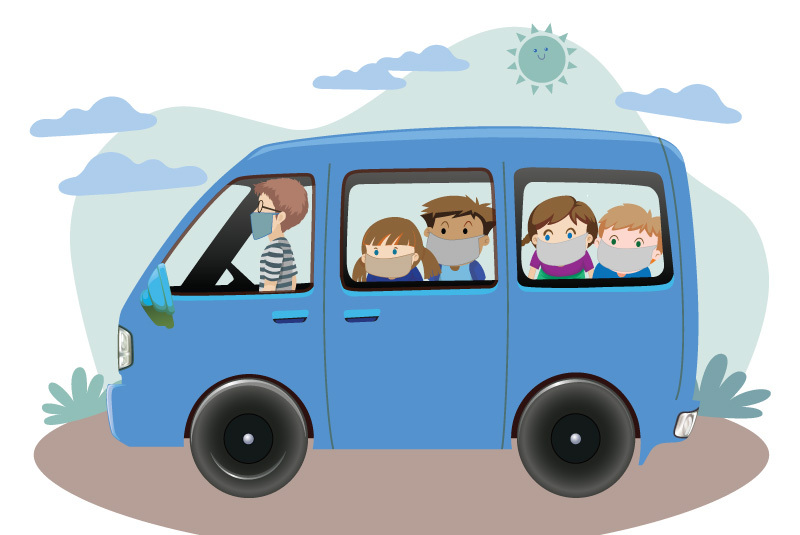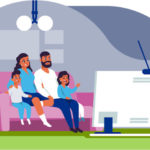Carpooling during COVID-19: Is it safe?

There are many advantages to carpooling. It’s convenient, it saves on gas and parents’ time, and when you’re carting around kids, it gives them company for the ride. But during the coronavirus pandemic, carpooling may also carry a big risk.
Carpooling is a risk
“You’re in a very enclosed space, so you’re taking on a risk, especially if you can’t open the windows because of the weather,” says Dr. Rick Malley, an infectious disease specialist at Boston Children’s Hospital. “I think carpooling is safest if the members of your carpool are also part of your social bubble. If they are not, and particularly if the number of children in the pool is large, you are taking on a bigger risk. And with the number of COVID-19 cases increasing, this is not the best time to expand your exposure by driving other people in your car.”
Ways to reduce your risk
Dr. Malley says if you do need to carpool, here are some ways to reduce your risk:
- Make sure everyone in the car is wearing a mask at all times.
- Don’t remove masks to eat or drink.
- Weather permitting, keep at least two windows open whenever possible so air can circulate.
- Carpool with the same group consistently.
- Try not to pack the car full with people — the fewer the better.
Although taking these steps won’t reduce your risk completely, they can help.
Read more about Boston Children’s response to COVID-19.
Related Posts :
-

Why parents really need to talk to their children about the news
These are strange, anxiety-provoking times. That’s true no matter where one lives or where one sits on the political ...
-

Taming vaccine data: Joann Arce, PhD
Part of an ongoing series profiling researchers at Boston Children’s Hospital. Joann Arce, PhD, is a data tamer — corralling ...
-

Immune biomarkers predicted COVID-19 severity and could help in future pandemics
Why did some people fall critically ill from COVID-19 and others not? In May 2020, as COVID-19 swept the world, Boston ...
-

Deep plasma proteomics: Back to the future
Blood plasma is collected from people routinely during clinical care and for research. It is potentially a rich source of ...





